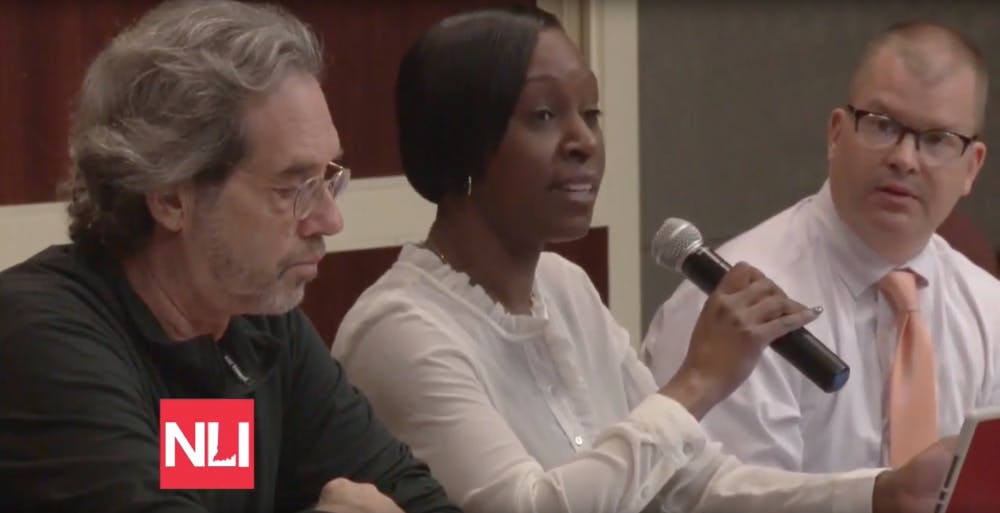For more information go to the conduct code policy on Ball State’s website.
“Congress shall make no law respecting an establishment of religion of prohibiting the free exercise thereof or abridging the freedom of speech or of the press.” This is part of the First Amendment of the Constitution of the United States.
Ball State students have been protesting in regards to recent issues, such as President Donald Trump’s inauguration. State universities are technically public property, which means students are able to protest on university grounds. A forum was held week at Ball State Teachers College to discuss freedom of speech at universities.
According to Ro-Anne Engle, the associate vice president for student affairs and enrollment services , freedom of speech on campus is important.
“We receive public funding through the state which is even more important for Ball State as a public institution,” she said.
According to Greg Lukianoff, author of the website FIRE , that deals with students’ rights, students have more free speech at public universities than private universities. Private universities can change their rules and freedom of speech for students sometimes to coincide with their religion or beliefs.
Ball State has been allowing protestors on campus, and some of the recent protests have been centered around the inauguration of President Donald Trump.
Before students are allowed to protest on campus, they need to go through a formal process. According to Melissa Ann Hartley Ginotti, the assistant vice president for student affairs and director of student life, there is a permit process students have to go through before holding a protest. The permit is a sheet that is found in the conduct code policy for student rights. The application goes through student life officials before it gets approved.
Ginotti said she wants to know what the students are planning to do before they do it.
“Just let us know the date and time you would like to do it, and we can get it approved.”
If students choose to not register their protest with the university, there may be consequences. If students don’t follow the rules found in the conduct code policy, the university could sanction the student or group. Some of the sanctions include: suspension, dismissal from the university and placing the student on probation.
University Police Chief James Duckham said that he or his colleagues won’t respond to the protest unless there is violence.
“If you say something and you don’t like it, I’m not going to get involved in it,” he said. “I don’t see that as my role.”
University officials urge students to come forward with any questions about their freedom of speech on campus.





